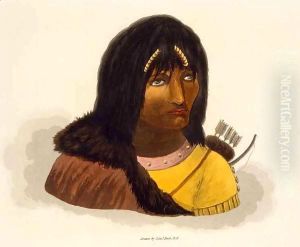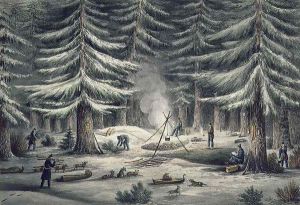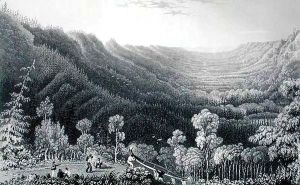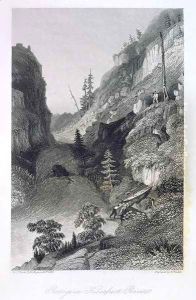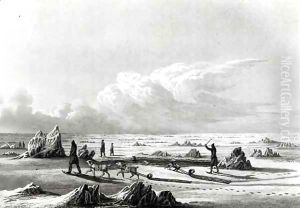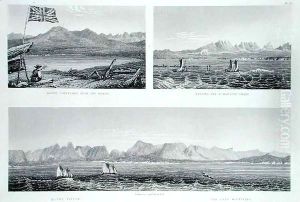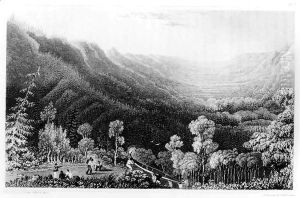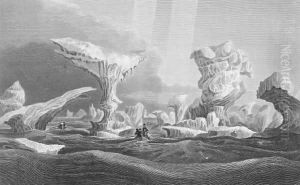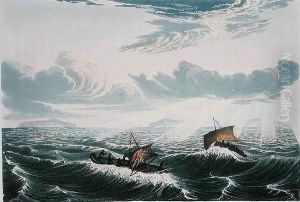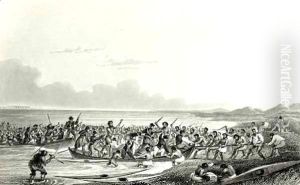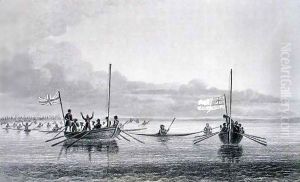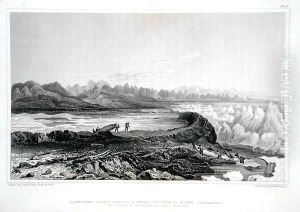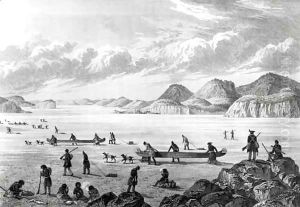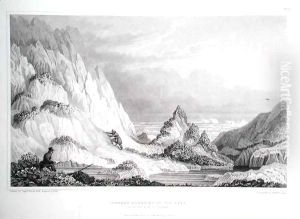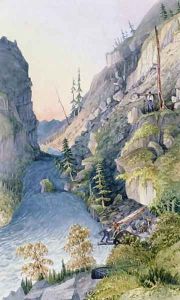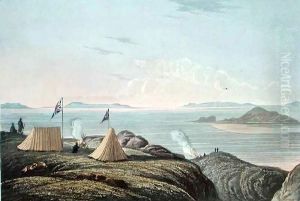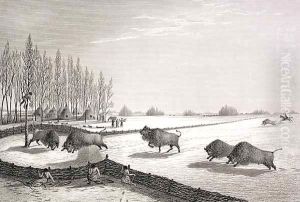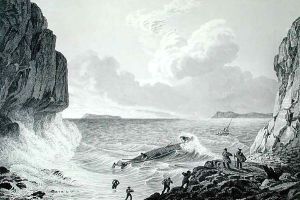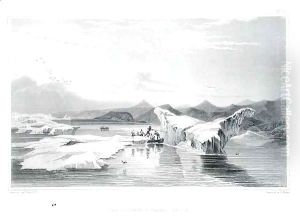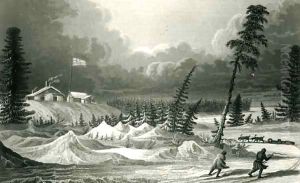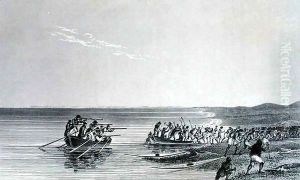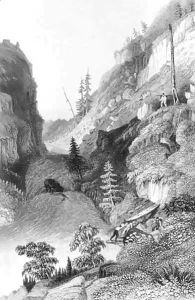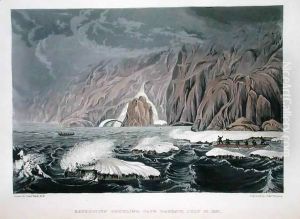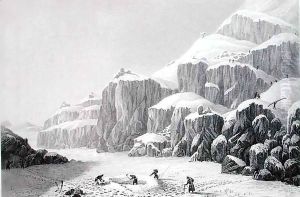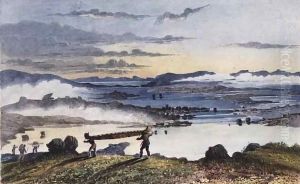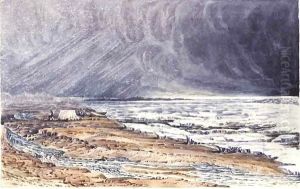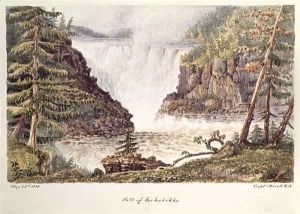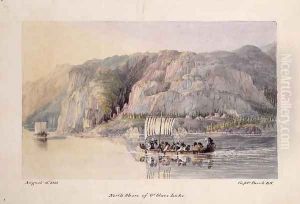Sir George Back Paintings
Sir George Back was a British Royal Navy officer, explorer of the Arctic and artist. Born on November 6, 1796, in Stockport, Cheshire, England, Back went on to have a distinguished career in the Royal Navy. He joined the Navy at a young age and was involved in the Napoleonic Wars. Following the war, Back turned his attention to the Arctic, where he became one of the foremost explorers of his time.
Back's first experience in the Arctic was as a midshipman on Captain John Franklin's first two expeditions to the Canadian Arctic (1819-1822 and 1824-1826). These expeditions aimed to map the North American coastline and search for the Northwest Passage, a sea route connecting the Atlantic and Pacific Oceans through the Canadian Arctic Archipelago.
Back distinguished himself during these voyages and was chosen by Franklin to lead an overland expedition to the Arctic coast from Great Slave Lake in 1833-1835. This expedition was undertaken to rescue the missing members of John Ross's Arctic expedition. Although the rescue mission was unsuccessful, Back charted and explored what is now known as the Back River.
In addition to his exploration work, Back made significant contributions to the field of art. He was a talented artist and his sketches and paintings of the Arctic landscape and indigenous peoples provided a valuable visual record of the regions he explored. His artwork was highly regarded and contributed to the public's interest in Arctic exploration.
Back conducted one more Arctic expedition in 1836-1837, which was marred by tragedy and hardship. Despite this, he continued to serve in the Royal Navy, reaching the rank of Admiral before his retirement. Back was knighted for his services to Arctic exploration.
Sir George Back died on June 23, 1878, in London. His legacy includes his detailed maps of uncharted Arctic territories and a rich collection of art that continues to be of historical and aesthetic value. Back has been commemorated in various ways, including the naming of geographical features in the Canadian Arctic after him.
